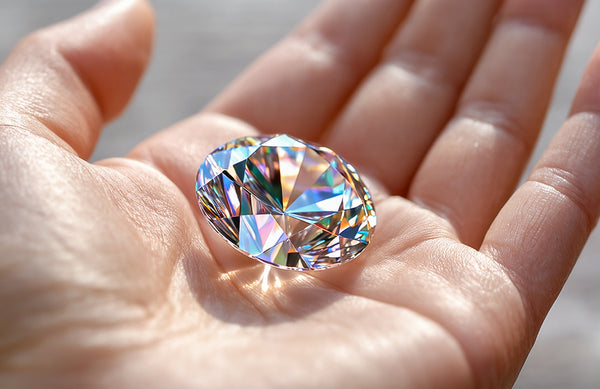When you buy a diamond, it’s more than just a beautiful accessory; it's a personal investment too. For decades, diamonds have been a go-to option for luxury buyers not only because they are a reflection of their prosperity but also because diamonds serve as a valuable asset that comes with a great trade-in value. Be it Lucira Jewelry’s intricate Bracelets, the classic Engagement Rings, or a bold statement Necklace, they hold just as much financial value as emotional value.
As these sustainable alternatives to Mined Diamonds gain popularity for their positive environmental impact, many luxury buyers still find themselves at the crossroad. The question on their minds isn’t just about ethics or beauty, it’s about value. Do Lab Grown Diamonds hold their worth the same way natural ones do?
Let’s take a closer look and explore the resale landscape of Lab Grown Diamonds, unpacking the value they offer when viewed through the lens of investment.
Understanding The Value Of Lab Grown Diamonds
To understand the value of Lab Grown Diamonds, we first need to understand what the term “value” means in the diamond market. Value often connects to how much a diamond can be resold for and what makes it worth the resale value. Essentially, the financial value of a Lab Grown Diamond proves that it is a viable investment.
Lab Grown Diamonds are a product of technological advancements. They look just as beautiful as Mined Diamonds, but at nearly no cost to the environment. So their resale value is not linked to their rarity. They derive their value from the cost of their production and the art and skill required to create such beautiful pieces.
The Real Deal with Lab Grown Diamond Resale
Lab Grown Diamonds cost considerably 30% to 50% less than Mined Diamonds. This price accessibility is one of their biggest advantages. Beyond the initial savings, as technology continues to evolve, enhancing both the quality and scalability of production, the Lab Grown Market is quickly gaining credibility and momentum. With this rapid progress, the resale ecosystem is also beginning to take shape.
Many Lab Grown Diamond brands offer a fair and transparent buyback policy to make sure that you get the true value of your investments. When you sell your Lab Grown Diamond jewelry to such brands, you will often get 90% of its current market value. So Lab Grown Diamonds are now not only a great choice ethically, but financially as well.
If your goal is to upgrade your jewelry collection with an exquisite piece of Lab Grown Diamond Jewelry, you usually get 100% of the current market value on the exchange of your old Lab Grown Diamond Jewelry. As long as you have your jewelry’s certification and it passes the quality check, Lab Grown Diamonds are as good an investment as any.
So, Do Lab Grown Diamonds Hold Value?
The answer is: Yes, especially when brands like Lucira Jewelry hold their products as well as values to the highest of standards.
Unlike the fluctuating secondary market where resale options for Lab Grown Diamonds may be limited or undefined, Lucira Jewelry ensures that your jewelry purchase is backed by:
- A guaranteed lifetime exchange at full market value.
- A transparent and fair buyback policy at 90% market value.
- Clear terms and secure processes, minimizing the uncertainty that often clouds jewelry resale.
Your diamond’s value doesn’t vanish the moment it leaves the box. With Lucira Jewelry, it remains an evolving asset, whether you exchange it for a trendier style or sell it back.
Value Beyond the Purchase
Lab Grown Diamonds hold value beyond resale figures and exchange rates, there’s something deeper at play, that is, value in sustainability, evolving styles, and ethical sourcing. Your jewelry isn't just an expense; it's an investment in a brighter and more responsible future.
At Lucira Jewelry, we’re not just selling Lab Grown Diamonds, we’re building lifelong relationships. Our Lifetime Exchange and Buyback Policy ensures that your sparkle stays as timeless as your evolving style.
Whenever you’re ready for a change, your jewelry's value stays with you.


















